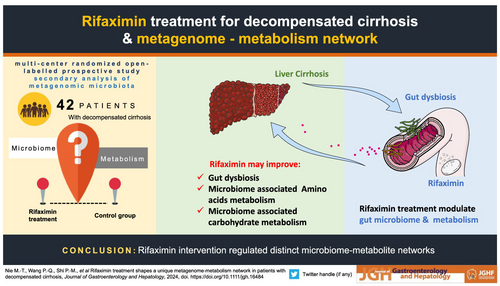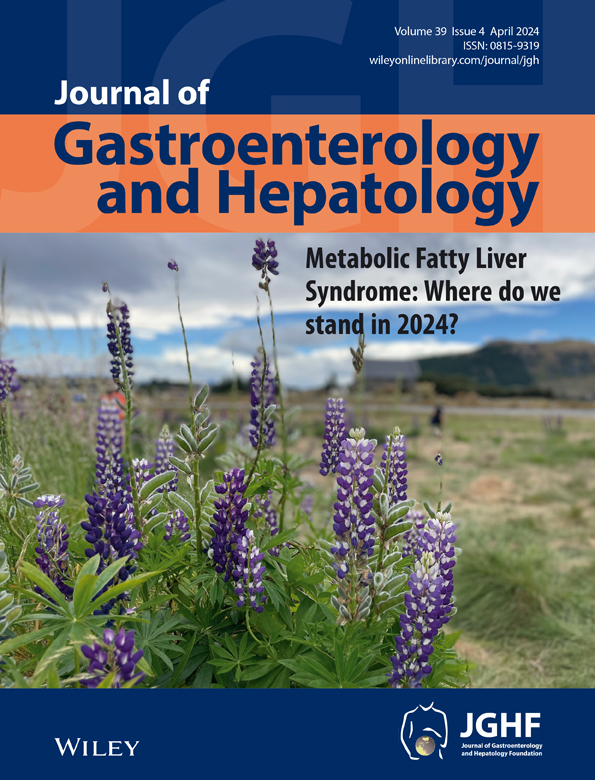Rifaximin treatment shapes a unique metagenome-metabolism network in patients with decompensated cirrhosis
Abstract
Background
Patients with decompensated cirrhosis face poor prognosis and increased mortality risk. Rifaximin, a non-absorbable antibiotic, has been shown to have beneficial effects in preventing complications and improving survival in these patients. However, the underlying mechanisms of rifaximin's effects remain unclear.
Methods
We obtained fecal samples from decompensated cirrhotic patients undergoing rifaximin treatment and controls, both at baseline and after 6 months of treatment. Shotgun metagenome sequencing profiled the gut microbiome, and untargeted metabolomics analyzed fecal metabolites. Linear discriminant and partial least squares discrimination analyses were used to identify differing species and metabolites between rifaximin-treated patients and controls.
Results
Forty-two patients were enrolled and divided into two groups (26 patients in the rifaximin group and 16 patients in the control group). The gut microbiome's beta diversity changed in the rifaximin group but remained unaffected in the control group. We observed 44 species with reduced abundance in the rifaximin group, including Streptococcus_salivarius, Streptococcus_vestibularis, Haemophilus_parainfluenzae, etc. compared to only four in the control group. Additionally, six species were enriched in the rifaximin group, including Eubacterium_sp._CAG:248, Prevotella_sp._CAG:604, etc., and 14 in the control group. Furthermore, rifaximin modulated different microbial functions compared to the control. Seventeen microbiome-related metabolites were altered due to rifaximin, while six were altered in the control group.
Conclusion
Our study revealed distinct microbiome-metabolite networks regulated by rifaximin intervention in patients with decompensated cirrhosis. These findings suggest that targeting these specific metabolites or related bacteria might be a potential therapeutic strategy for decompensated cirrhosis.
Graphical Abstract
Open Research
Data availability statement
The original sequencing data can be accessed at Genome Sequence Archive (GSA) HRA004464 (https://ngdc.cncb.ac.cn/search/?dbId=hra&q=HRA004464).





